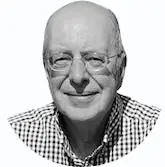Urban myth
What's the meaning of the phrase 'Urban myth'?
An urban myth is a story, generally untrue but sometimes one that is merely exaggerated or sensationalised, that gains the status of folklore by continual retelling.
Such stories, which may be old and cliché-ridden, are often given a degree of plausibility by being updated in a contemporary setting, or by the teller's claims of personal involvement.
What's the origin of the phrase 'Urban myth'?
Note: This is a language site and so we are primarily concerned here with the meaning and origin of the term 'urban myth' rather than with the myths themselves, although it's hard to write about myths without straying into that territory.
It is impossible to manage a website about etymology without coming into daily contact with 'folk etymology', which is the linguistic branch of urban mythology and here the ludicrous nonsense stories that are circulated as 'Life in the 1500s' tops the pile.
This topic is such a cans of worms that I hardly know where to begin. The words used in the little term 'urban myth' are contentious in themselves, so let's start there. Why 'urban'? The setting of these stories isn't limited to cities; for example, the Vanishing Hitch-hiker tale is usually set on some deserted back road. The stories that fall in the 'urban myth' category aren't limited to city life - they are those that are set in contemporary industrialized societies, as distinct from traditional folklore tales.
Then there's 'myth'. Many students of this field prefer the terms 'urban legend' or 'urban folklore'. 'Myth' implies that the stories are all false and, whilst most of them clearly are, some may contain elements of truth. In fact, one of the essential factors in a plausible retelling is the introduction of real events; top of that list of course being the claim that 'I was really there - it happened to me'. If the teller wasn't there then you can be sure that a 'FOAF' (friend of a friend) was. This word has now also entered the language via these stories and has its own definition in the Oxford English Dictionary.
Perhaps a name that is nearer to being definitive of this form of story would be 'contemporary legend'.
Another source of dispute is the origin of all of these terms. Mythology and the need to tell tall tales are obviously ancient, but the term 'urban myth' isn't especially old. A version of it dates from 1960, when it was used by William H. Friedland in conference paper titled Some Urban Myths of East Africa. Likewise, the term 'urban legend' was put in print as early as 1925, when it appeared in a New York Times piece headed 'Europe’s Population Growth':
"Around the subject of population there has been a growth of popular legend hard to remove. Great Britain illustrates the urban legend."
This 'urban legend' citation isn't the contemporary meaning but refers to stories about urban life in Great Britain that were mythical.
The first reference I can find to 'urban legend' in the sense we mean here is Richard M. Dorson Our Living Traditions, 1968:
"Urban legends deal with the ghostly hitchhiker, the stolen grandmother, and the death car."
One of the first of the 'urban myths', and surely now a classic, is the tale of alligators living in New York City's sewers. This is the first story that describes an actual urban myth and the source of the belief was a borderline insane scheme by Little Rock Council to buy alligators from New York and use them to chase away beavers. This was printed in The Frederick Post, August 1984:
'The ordinance authorized the mayor to negotiate "at arms length" with New York City officials for the alligators, which urban myth says thrive in the city's sewer system.'
Now; have you heard the one about the ghostly etymologist who microwaved his grandmother's pet monkey...?


